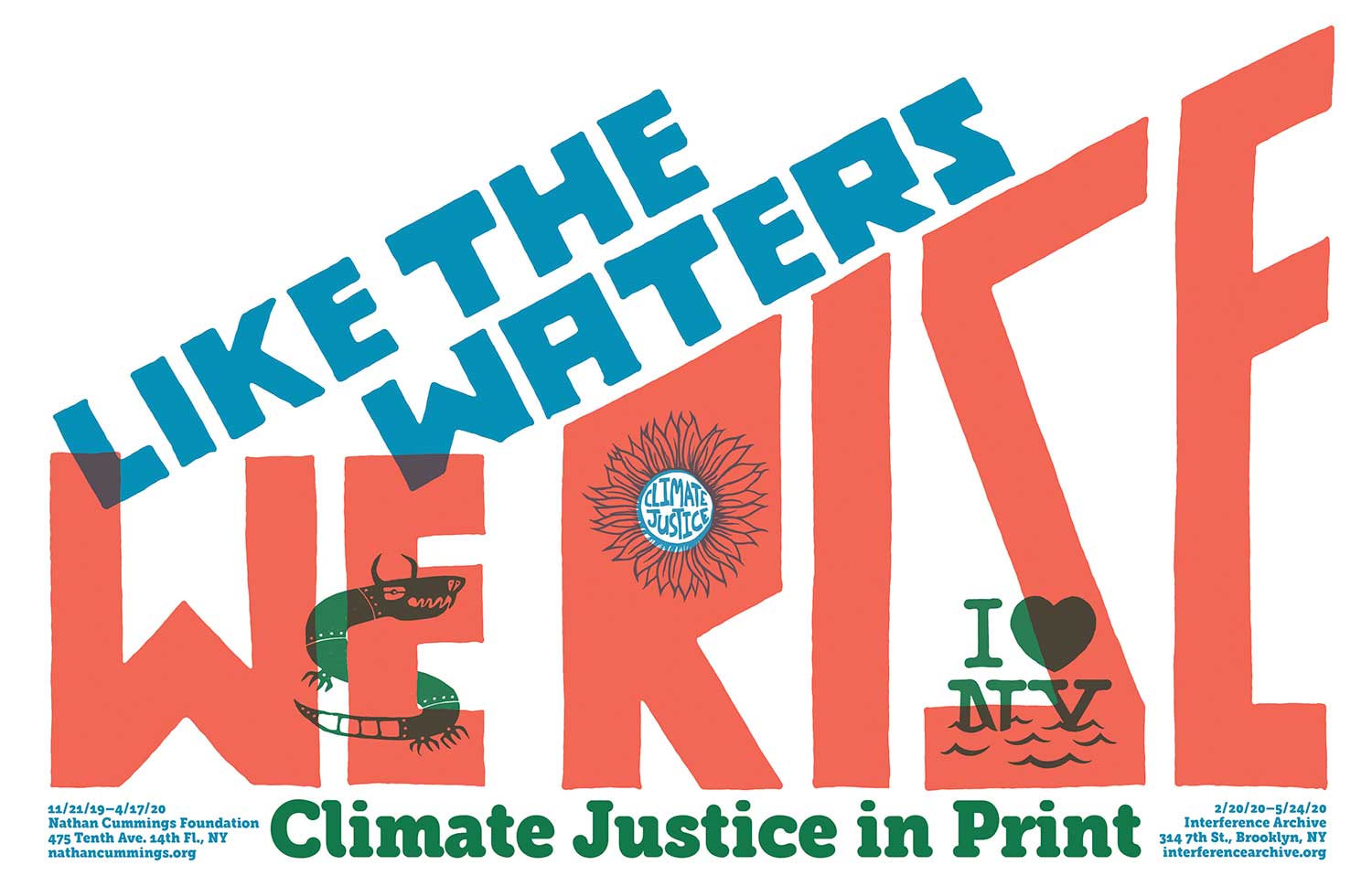BOTH EXHIBITION VENUES ARE CLOSED UNTIL FURTHER NOTICE.
A vast movement for climate justice continues to rise worldwide, directly challenging the powerful interests of those most responsible for the climate crisis, while working towards building a just and equitable response that ensures the health, safety and dignity of all people. At its center, the climate justice movement is driven by an understanding that economic and racial disparities result in unequal, unjust impacts—impacts which are already being felt in communities across the country. Just as importantly, many of the solutions we will need are emerging from these very communities on the frontlines.
Artists have long been at the heart of this movement, finding bold, inspiring ways to help uplift struggles, reveal connections between climate and intersecting issues, build public support, and paint a picture of the world we are working to create. Like the Waters, We Rise tells the story of this expansive climate justice movement through a collection of print-based works developed as part of—or inspired by—occupations, direct actions, and mass mobilizations. Taken together, these works show the many terrains of struggle, points of intervention, and solutions of this continually expanding movement of movements.
Like the Waters, We Rise is developed in collaboration with Interference Archive, an all-volunteer “archive from below” located in Brooklyn. For the last eight years Interference has dedicated itself to carefully collecting, documenting, and preserving the cultural work of social struggles throughout the past several decades.
The exhibit takes place in two parts. The first opens here at the Nathan Cummings Foundation, and includes a selection of recent print based work (2005-present) beginning the year that Hurricane Katrina crashed onto the shores of the Gulf Coast. The second opens at Interference Archive in February 2020, and will include a collection of archival prints documenting the historical legacies of movements that gave birth to the current climate justice movement, including the Indigenous sovereignty movement, the farmworker movement, Black liberation struggles, and more.
The work shown within these exhibitions provides a partial look at a continually growing body of work, one that shows the growing strength and reach of the climate justice movement, a movement through which so many of our issues, struggles, and communities are connected.
This project was organized by Raquel de Anda (lead curator) and Nora Almeida, Ryan Buckley, Sophie Glidden Lyon, Josh MacPhee, and Siyona Ravi.
